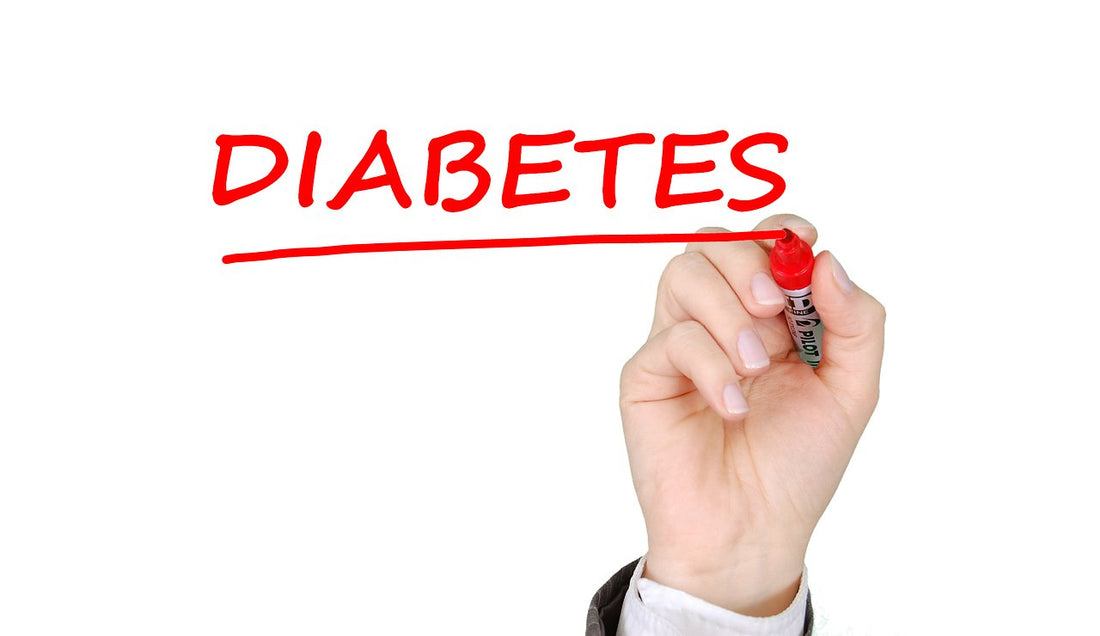
Studies finds Benefits of Resveratrol for Diabetes.
Share
Resveratrol and Blood Glucose Health
In a recent meta-study of Nine randomized controlled trials, resveratrol was found to potentially lower fasting glucose in subjects with type 2 diabetes. Studies also shows that resveratrol may help in managing other diabetes-derived conditions. Researches have suggested that resveratrol may support vision health, kidney health and cognitive health.
Glucose homeostasis, a tightly regulated balance
The levels of glucose in blood (blood sugar) must be kept within a narrow range. Insulin and glucagon are the hormones allowing this regulation.
Aging and other factors can cause the body to stop using insulin properly, leading to the rise of glucose levels and the development of type 2 diabetes mellitus (T2DM).
Diabetes increases the chance of cardiovascular disease and damages the nerves, kidneys, eyes and feet, among other conditions, reducing dramatically the quality of life.
Resveratrol helps manage blood glucose and insulin resistance in subjects with type 2 diabetes mellitus

Two different meta-analyses pooled data from 9 and 11 studies respectively, arriving to similar conclusions.2,3 Resveratrol was found to significantly lower fasting glucose, insulin and insulin resistance in subjects with T2DM. Cardiovascular parameters as systolic and diastolic blood pressure were also improved.
A subgroup analysis performed in the most recent meta-analysis concluded that studies using doses equal to or greater than 100 mg of resveratrol per day presented more favorable results. Interestingly, the earlier meta-analysis found that resveratrol does not affect glycemic measures in nondiabetic persons.
9 Studies, Two Eighty Three individuals with T2DM, Four weeks – Twelve months (median 45 d.), 8 – 3000 mg daily (median 250 mg/d). 11
Studies, Three Eight Eight individuals, Two weeks – Six months (median 12 w.), 8 – 2000 mg daily (median 100 mg/d).
Resveratrol has been shown to improve cardiovascular parameters on diabetics .
A recent meta-analysis has pooled the data from 17 different trials and analyzed the effects of resveratrol on blood pressure, one of the most common complications in patients with T2DM.4
Subgroup analysis concluded that resveratrol significantly lowers systolic, arterial and pulse blood pressure in diabetic subjects. Moreover, resveratrol effects in blood pressure are also noticeable in a general population when used in a high daily dose (≥300 mg/day).
Resveratrol helps in managing other diabetes-derived
Conditions
Studies have suggested that resveratrol may support eye health (including diabetic retinopathy),5–7 kidney health (incl. diabetic nephropathy),8,9 and brain health (including diabetic neuropathy).10,11
One of the most striking benefits of resveratrol for diabetics may be the management of diabetic foot ulcers. A recent clinical study carried out in subjects with diabetic foot syndrome found that a daily dose of 50 mg of resveratrol promoted the reduction of the foot ulcer size and reduced plasma fibrinogen levels.
24 individuals with diabetic foot syndrome, 60 days, Placebo or 50 mg resveratrol daily,foot ulcer size and other parameters.
References
- National Diabetes Statistics Report, 2017, CDC, 2017.
- Zhu, X., Wu, C., Qiu, S., Yuan, X. & Li, L. Effects of resveratrol on glucose control and insulin sensitivity in subjects with type 2 diabetes: systematic review and meta-analysis. Nutr. Metab. (Lond). 14, 60 (2017).
- Liu, K., Zhou, R., Wang, B. & Mi, M.-T. Effect of resveratrol on glucose control and insulin sensitivity: a meta-analysis of 11 randomized controlled trials. Am. J. Clin. Nutr. 99, 1510–9 (2014).
- Fogacci, F. et al. Effect of resveratrol on blood pressure: A systematic review and meta-analysis of randomized, controlled, clinical trials. Crit. Rev. Food Sci. Nutr. 0, 1–14 (2018).
- Bola, C., Bartlett, H. & Eperjesi, F. Resveratrol and the eye: Activity and molecular mechanisms. Graefe’s Arch. Clin. Exp. Ophthalmol. 252, 699–713 (2014).
- Abu-Amero, K. K., Kondkar, A. A. & Chalam, K. V. Resveratrol and ophthalmic diseases. Nutrients 8, 1–16 (2016).
- Goutham, G. et al. A focus on resveratrol and ocular problems, especially cataract: From chemistry to medical uses and clinical relevance. Biomed. Pharmacother. 86, 232–241 (2017).
- Chang, C. C. et al. Resveratrol retards progression of diabetic nephropathy through modulations of oxidative stress, proinflammatory cytokines, and AMP-activated protein kinase. J. Biomed. Sci. 18, 1–10 (2011).
- Wen, D. et al. Resveratrol attenuates diabetic nephropathy via modulating angiogenesis. PLoS One 8, 1–12 (2013).
- Kumar, A. & Sharma, S. S. NF-κB inhibitory action of resveratrol: A probable mechanism of neuroprotection in experimental diabetic neuropathy. Biochem. Biophys. Res. Commun. 394, 360–365 (2010).
- Kumar, A., Negi, G. & Sharma, S. S. Neuroprotection by resveratrol in diabetic neuropathy: concepts & mechanisms. Curr. Med. Chem. 20, 4640–4645 (2013).
Buy Now best Resveratrol supplement online in India at sharrets.com









